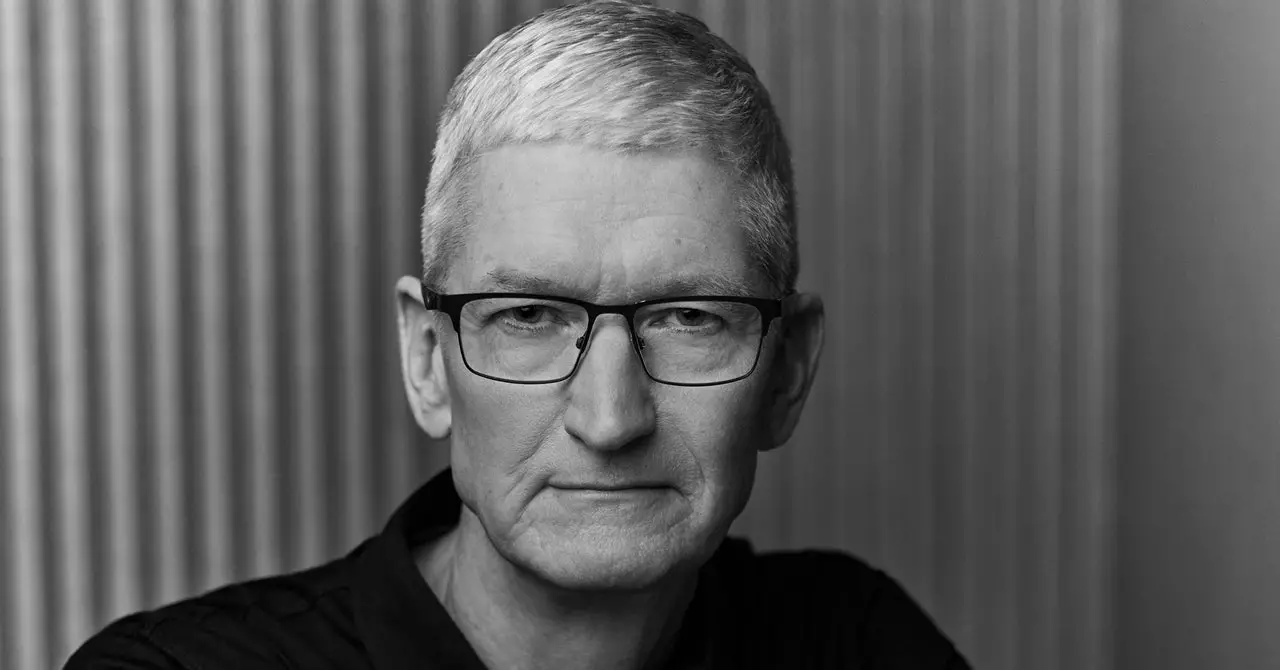In the world of technology, the landscape shifts rapidly, where companies often find themselves at pivotal crossroads defining their future. Apple, under the stewardship of CEO Tim Cook, is navigating such a critical juncture with the impending launch of Apple Intelligence—a key player in the increasingly competitive generative AI sector. As someone who has closely followed Apple’s trajectory, I gained intriguing insights during a visit to Apple Park, a testament to the company’s rich culture and ambition. Reflecting on this experience, it’s clear that Cook’s leadership and philosophical approach set Apple apart in this dynamic environment.
The Evolution of Apple’s Vision
During a memorable tour of Apple Park—a masterpiece of architecture—Tim Cook shared his vision of creating a campus that embodies Apple’s ethos. He referred to this project as a “100-year decision,” emphasizing the long-term impact that Apple aims to achieve. This perspective brilliantly encapsulates Cook’s broader strategy for the company: not rushing to be the first but rather ensuring that Apple’s innovations resonate with customers in a meaningful and sustainable way.
As the tech world buzzed with advancements in generative AI, competitors hurriedly announced their respective products, capturing headlines and investor attention. Amidst the noise, Apple appeared to take a step back, reflecting on its strategies and formulating a unique approach to enter the AI arena. This measured pace paves the way for Cook to champion Apple’s long-standing commitment to not only innovation but also user-centric values.
Tim Cook is often noted for his operational excellence and meticulous decision-making processes. His ability to adjust strategies based on market demands allows Apple to remain competitive while still prioritizing a user-friendly experience. This is particularly evident in Apple’s AI endeavors. Instead of cutting through the frenzy with haste, Cook directed efforts toward developing tools that would seamlessly integrate into Apple’s existing ecosystem.
By acquiring key talent, like former Google AI head John Giannandrea, and shifting focus towards enhancing existing products rather than chasing the latest trends, Cook illustrates his approach to innovation: a blend of patience and precision. By October 2023, this strategy bore fruit, with Apple now offering a suite of AI tools that enhance the user experience, proving that always trying to be first is not necessarily where greatness lies.
One of the defining tenets of Apple’s AI strategy is its unwavering commitment to user privacy—a hallmark of Cook’s tenure and one that resonates deeply with ethical consumerism. In an age marked by rising concerns over data security, Apple seeks to differentiate itself by ensuring that AI functionalities function primarily on-device. This not only boosts performance but also offers peace of mind to users wary of sharing their data with external servers.
As Cook elaborated, complex tasks can still utilize Apple’s secure data centers, but the essence of AI processing takes place within the confines of the device. This nuanced approach sets Apple’s AI initiatives apart from competitors who rely heavily on cloud computing, thus reinforcing consumer trust—an invaluable currency in today’s tech landscape.
Despite the challenges and the spotlight on Apple’s slow entry into generative AI, I observed an air of confidence around Cook as he walked me through the upcoming features of Apple Intelligence. Innovations such as an advanced emoji creation suite and an intuitive image generation tool hint at a future where Apple users can enjoy creative flexibility powered by AI.
Moreover, the revival of Siri, which has historically struggled to compete with other voice assistants, promises a comprehensive AI experience tailored to individual user preferences. Cook’s attempts to reinvigorate Siri show that Apple is not merely playing catch-up but is instead repositioning to strengthen its foundational software landscape.
Throughout my engagement with Tim Cook, his demeanor remained composed and measured—qualities that serve him well in a high-pressure industry. He adeptly navigated discussions about Apple’s initiatives while evading questions about less successful ventures, demonstrating a level of strategic discretion that speaks to his leadership style.
While the ultimate judgment on Apple Intelligence will come from its users, the expectation is high. Should the first iteration face setbacks, it’s clear that Cook will remain unfazed, ready to tout subsequent versions as breakthroughs, diligently carrying forward the Apple legacy.
As Apple steps onto the AI stage, it does so under the steady hand of Tim Cook, whose blend of patience, strategic vision, and commitment to user privacy illustrates a path that not only aims for technological prestige but also prioritizes authenticity and trust. As users, we await with bated breath to see if Apple Intelligence can truly reshape our interactions with technology as it has done with music, communication, and computing in times past.

